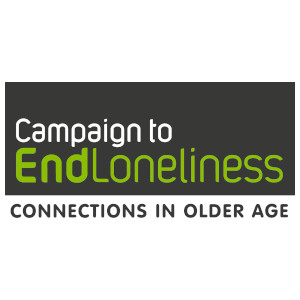Everyone’s felt lonely, but losing someone you love brings a different kind of loneliness. One where you feel so low and empty that you can hardly remember what happiness feels like. There seems to be a dark cloud above you and you feel so numb as you try to come to terms with that person’s death.
In the first days and weeks after losing my mum in September 2012, just before going back for my second year of university, everyone was kind and supportive, but nobody could fill the huge void in my life without her. They would listen to me talking about my loss, but they couldn’t fully understand the pain I was going through. I hated feeling like I was bringing down the fun-loving mood of university life, like every time I walked in the room I brought a depressing energy that no one wants to be around, that people felt awkward around me because they didn’t know what to say.
Five and a-half years later, I’m living in London, which of course has a huge population, and yet despite so many people I still feel lonely often. I would give anything to see my mum again and catch up over a coffee, talking about life and everything that’s happened.
There’s something simple yet wonderful about having a good chat with a close friend in a café or coffee shop, isn’t there? Loneliness feels so far away during these times. It’s not like when you go out drinking with a large group of people, many of whom you probably even don’t know that well, and you feel lonely despite being surrounded by people. This clearly happens when there just isn’t a connection, and I have nothing to add to the current conversation (especially if the topic is football…).
It doesn’t happen when it’s just you and a really good friend, bouncing off each other so naturally in your conversation. Conversations were always like that with me and my mum, we never ran out of things to talk about. It was the same on MSN Messenger too – we were pretty much the only two people in the country who were still using that to keep in touch in 2012 (MSN was what you logged on to when you came home from school when you were a teenager), but me and my mum still talked on it pretty much every day throughout my first year at uni. We’d talk about our days, she’d help me to choose what to wear for a night out, and I’d find out how her hospital appointments went.
I’m not sure I will ever have a connection with another person that’s as strong as it was between mum and me, but I hope so, because I feel her loss every single day. I hate that now I live in London, there’s nothing of her here, there are no memories associated with her and the area. But sometimes going home can be painful, as I can stand in the same spot in the kitchen as I was standing at the day she came in and told me she’d been to the doctor as she found a lump. I have to try not to think about painful memories like these, and instead remember all the good times. She’d been there for me all my life till she died, she’d never let me down, she’d done so much for me in the almost 20 years I had her in my life, from bringing me into the world to raising me to who I am today. I may be frequently lonely and lacking self-esteem, but I’m still a good person, and I owe that to her.
Dealing with loneliness from bereavement
- If you have a Chatter & Natter table near you, going to it could give you a really big boost. While you might feel uncomfortable chatting to strangers at first, it might really brighten your day to have a chat with someone…even if it’s just for a few minutes!
- If you struggle to meet new people, you could consider going to a Meetup – I frequently go to London Shyness Social Group support groups and would definitely recommend these if you’re shy, lonely and living in London, as everyone is really friendly and it’s a safe space to talk about anything that’s getting you down.
- Don’t spend time with people who bring you down. Obviously, this one’s important no matter what your circumstances are, but it’s even more important if you’re going through bereavement.
- Talk to someone about you’re feeling, like a close friend or a counsellor.
- Don’t put pressure to grieve in ‘the right way’ or feel a certain way at a certain time. There is no right or wrong way to grieve.
- Look after yourself. It can be tempting to neglect these things as you focus on your loss in the first days, but it’s important to eat and sleep well and find simple things to make you feel better, like going for a walk.







